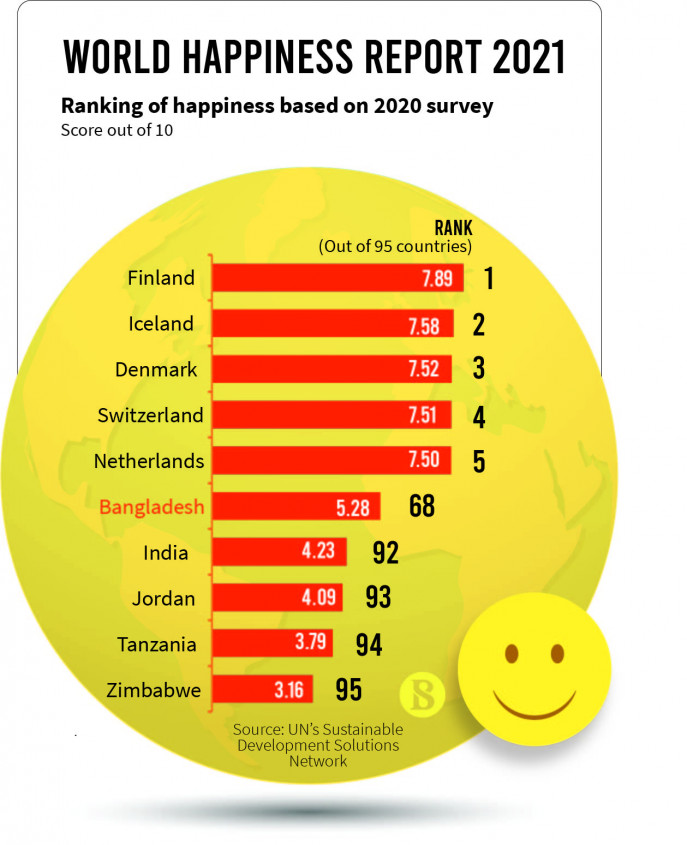In these challenging times of conflict and pandemics, the World Happiness Report presents a ray of hope. Not only did the pandemic bring agony and sorrow, but it also provided an upsurge in social assistance and charity. It is especially crucial to remember the global drive for pleasure and the ability of the individual to come to each other’s solidarity in moments of great need as we fight disease and warfare. The World Happiness Report, which effectively integrates survey data to notify on how people perceive their own lives in more than 150 nations around the world, is celebrating its tenth anniversary this year. Happiness is, of course, a worldwide phenomenon. In 2021, the World Happiness Report addressed over 9 million people.

The World Happiness Report has been based on two fundamental concepts since its inception: that satisfaction or life assessment can be evaluated through polls conducted, and that we can understand important factors that contribute to well-being and thus understanding the data of life evaluation across countries by identifying key factors that contribute of well-being. This data can then be used to assist countries to develop policies targeted at creating happier societies. And the World Happiness Report has taught us over the years that social support, compassion toward one another, and governmental trustworthiness are all essential for happiness. Leaders throughout the world should pay attention. Politics should be focused on the well-being of the people, not the rulers’ power, as the ancient philosophers long time ago emphasized.

COVID-19 is the worst public health disaster in more than a century, according to John Helliwell. “Now that we have two years of data, we can examine not only the significance of kindness and trustworthiness but also how they impacted to overall well-being during the pandemic.” “We discovered extraordinary global growth in all three acts of kindness assessed in the Gallup World Poll throughout 2021.” In 2021, unexpected assistance, volunteerism, and donations were all on the rise in every corner of the world, reaching levels over 25% higher than pre-pandemic proportions.

This flood of generosity, which was particularly strong in the area of unexpected assistance, demonstrates that individuals react to help people who are less fortunate, resulting in increased happiness for the recipients, excellent examples for others to emulate, and better standards of living for themselves.”


